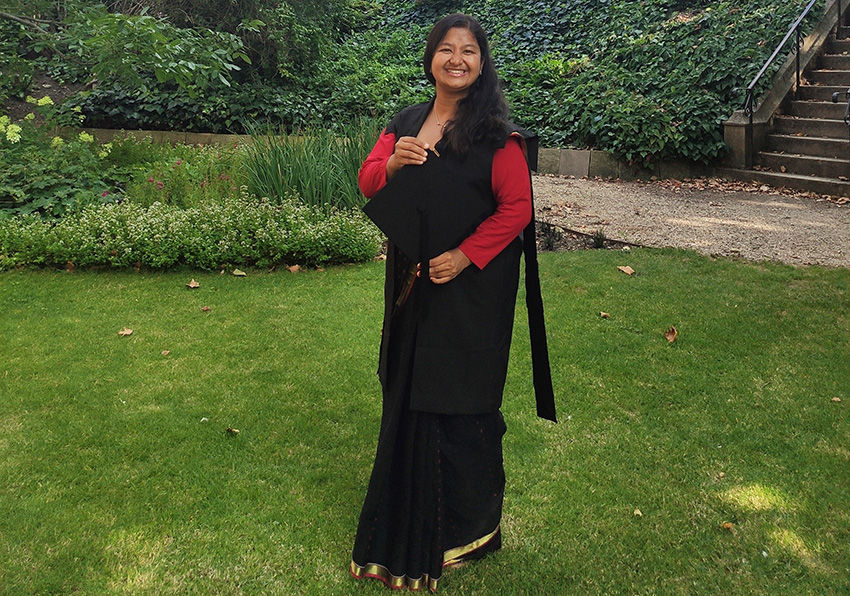Graduate research: Anjali Rawat on gender equality and religious freedom
To mark Women’s History Month Exeter College news intern Costi Levy has been speaking to Exeter students and alumnae about their work. In the first of the series, Anjali Rawat (2020, MPhil in Law) discusses how the Indian Constitutional Court should manage incompatibilities between gender equality and religious freedom.

Born and brought up in Rishikesh, India, Anjali studied at the NALSAR University of Law in Hyderabad. She spent three years working as a Banking and Finance Lawyer, before realising that, ‘I didn’t want to be doing corporate work. I wanted to move to work in human rights and gender’. After acting as a judicial clerk in India’s Supreme Court, she decided to apply to Oxford to specialise in the parts of the law which interested her most. Funded by the Dr. Mrs. Ambriti Salve Scholarship, Anjali completed her BCL in 2020 and is now spending the year doing a research MPhil in Law.
Anjali’s research focuses on the pertinent issue of the relationship between gender equality and religious laws in India. Her thesis ‘aims to address the standards which are currently used by courts and how they differ from those that ought to be used in assessing the conflicting claims of gender equality and religious personal law, if there is a conflict’.
Her investigation will consider polygyny and instant divorce, and instances where court judgements about these practices are applied for the wrong reasons, or without proper consideration of the social context. Anjali cites the 2017 banning of the Muslim practice of instant divorce in India, whereby a man can repeat the word divorce (‘talaq’) three times, by mouth or writing, and instantly divorce his wife. The Indian Court argued that the practice should be condemned because it allowed for the sacred ties of marriage to be broken too easily. A more appropriate justification, Anjali argues, would have been to address the fact that the practice risks robbing a woman of her autonomy. Despite the positive outcome of the practice being banned, the fact that the Court did not directly address the women involved in their decision making ‘obliterates the underlying issue of gender equality’.
Gender equality will only be achieved if we target all aspects of society. Whilst Anjali’s study focuses on how the law should be adapted to appropriately consider women in a variety of situations, equality should also be strived for at a grass-roots level. Anjali refers to her experience of gender equality in Oxford as ‘quite impressive’, but highlights that she was surprised to find that not all people were as aware of feminist issues as she’d hoped. If we are to live in an equal world, she argues, it is essential that those studying at top educational institutions are well informed. ‘Equality has not yet been achieved – we must push harder to claim our space everywhere’.
